Behind the Scenes - Conquering the last Summit
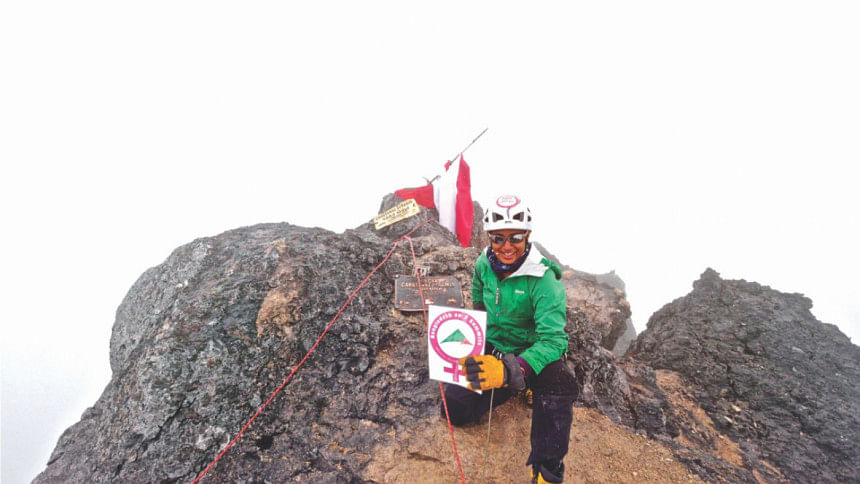
Clad in a vegetable dyed sari, Wasfia arrived at the doorsteps of the Daily Star carrying a real life bow and five arrows. "Don't worry. I have clearance from the government to keep them with me. I also had a chapatti (machete) which was given to me by a village chief in Papua. But it was held at the Indonesian immigration, so we are trying another way to bring it in." Surrounded by reporters and photographers, Wasfia managed to baffle all with her animated stories of her journey to reach the final and seventh peak. "Please know that I am against killing of living beings," she adds. "But the bow and arrows and the machete are gifts from two village chiefs in Papua and considered a matter of great honour when you surrender your arms!"
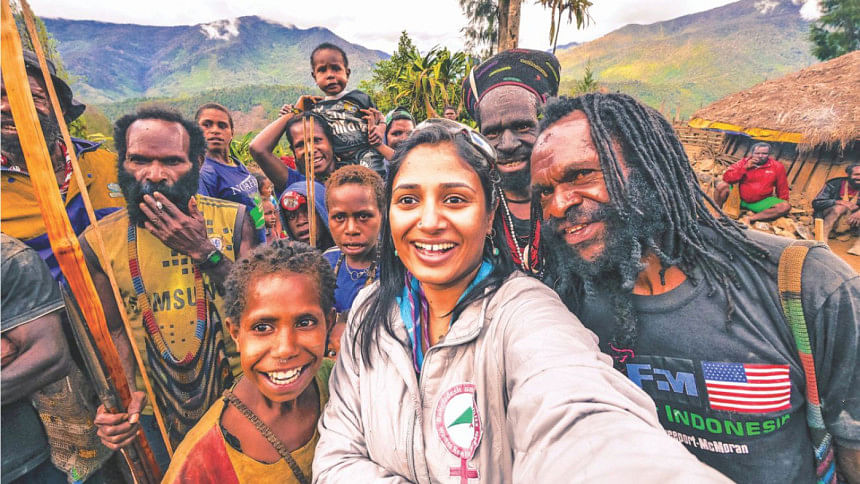
Wasfia decides to showcase everything she learned while crossing the beautiful Papuan jungles to reach the base of Carstensz Pyramid. "Waarriiii waarraaai! Waarriii waarrraaii!" screams Wasfia in a perfect high pitched tone, as she enters the feature section of the seventh floor. "This was the most popular cry inside the Papuan jungles," she explains to the Deputy Editor of the Editorial section, when she looked shocked and slightly scared. Wasfia jumps and squats as she speaks of the month-long experience in the Papuan villages. "I can't explain it in words," she explains to the Daily Star online video team. "I have to act it out and show it to you. Otherwise you won't understand!"
Clearly, Wasfia Nazreen's story is one of adventure, unexplored lands and cultures and also danger.
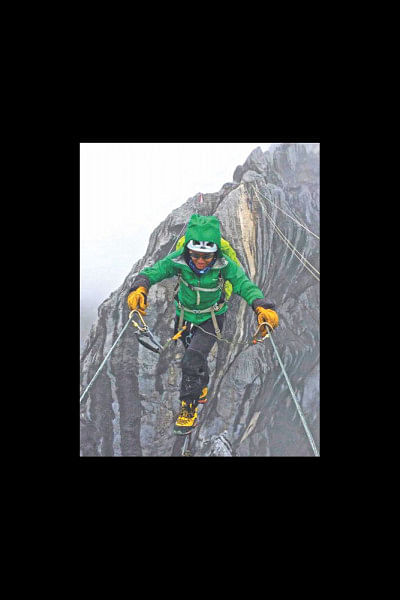
While crossing the jungle to reach the Carstensz Pyramid, Wasfia encountered people speaking exotic languages, eating and behaving differently from the so-called civilised society that we are used to. But they protected and guided her continuously, till she reached the base of the mountain and came back out again.
"Many mountaineers actually take a chopper across the jungle to reach the base of Carstensz Pyramid," explains Wasfia. "But Patrick Morrow and other mountaineering legends advised me against this. He said that doing so had no prestige whatsoever. In simple words, it would be considered cheating." Patrick Morrow was the first person in the world to have climbed the highest peaks of all seven continents, and has also overseen Wasfia's training.
"My Papuan translator, Johnny, his wife Joanna and their four-year-old son Jobi were with me all through out," she says. The jungles of Papua are beautiful, yet dense. Wasfia and an international group of mountaineers, who were given the permits to cross the jungle and climb Carstensz Pyramid, had to go through several hardships unimaginable to others. "While we trekked through the jungle, Johnny would chop off the denseness," she says.
"There were places where we had to walk through thick mud, up to the waist, cross rivers up to chest-level raging water, come in contact with sharp rock faces in the midst of torrential tropical rain minimum of 2/3rd of the day, if not 24/7 everyday."
A vegetarian, there came a time when Wasfia ran out of food that she was carrying with her. "In these areas, one often hunts for food," she explains. "Being a vegetarian, obviously I could not hunt and eat meat. And I had run out of the dry food that I was carrying -- rice, noodles, biscuits etc. That was when I had to resort to jungle fruits and mushrooms. Of course, I also had to make sure that the mushrooms were not poisonous or psychedelics, haha!"

She had heard that on the summit ridge, there was a bridge that one had to walk in order to get to another peak where the summit lied. "So I was looking for the bridge," says Wasfia. "But there was no bridge, only a 50 meter wire rope! So you actually have to become a trapeze artist then and there, balance with the help of two more 'lose' ropes tied parallel to the each other at 16000 feet, and cross to the other side.
This method of climbing is called Tyrolean traverse. This was further heightened with the fact that we were inside a thunderstorm. One slip and I could fall all the way down! And to think of it, I had to go through the same ordeal while making my way back after the summit!"
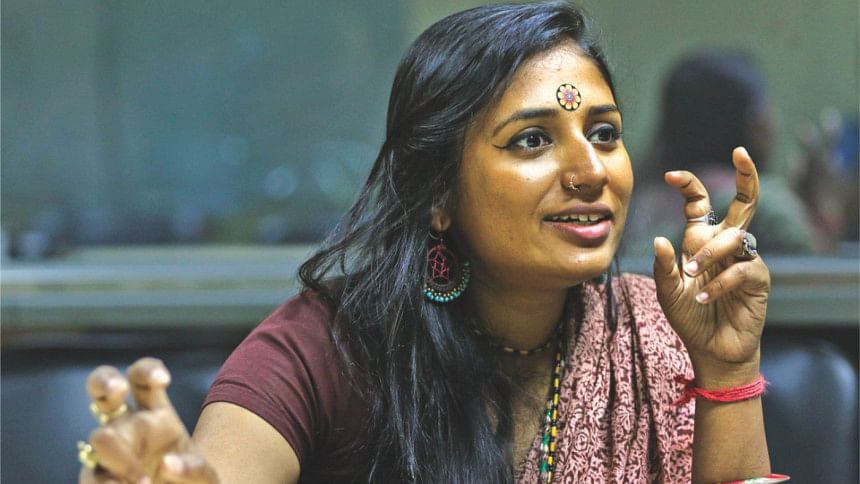
On the return journey, as Wasfia entered the village of Suangama, she was suddenly alarmed at the atmosphere of dread and anxiety that she could sense around her. "I could see a body of an old man lying as I entered. Then I noticed the western mountaineers who I shared the logistics with, were held and isolated at a corner by the villagers, so I quietly joined them," she remembers.
"There was something like a kangaroo-court held (all participants in squatting positions), we were trying to make sense of why this was being done, when Joshua, my Indonesian friend and guide told us that an old man, a respected elder of the village had suddenly died. The foreign mountaineers, or the 'white people' were being blamed by the villagers, for his death. So we tried to negotiate with them in many ways.
Finally we paid them the combined money that we had – which was to be used in the burial ceremony of the old man and take care of his family. However, after that, we were also asked to strip and give them our clothes! I was thinking to myself – how embarrassing the newspaper headlines would be like? The first Bangladeshi 7 Summiteer, crawls out naked from the jungle!"
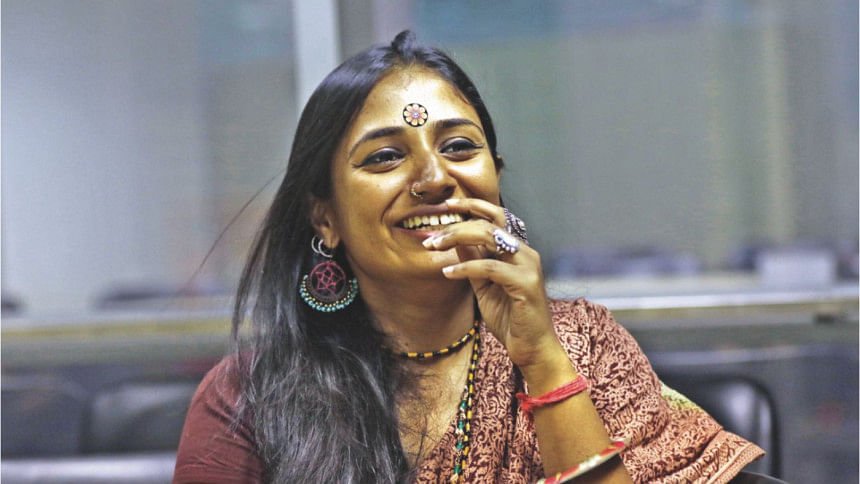
Eventually, the group escaped narrowly and moved on to the next village. Wasfia related her ordeals to the chiefs of the village who were also congratulating her for the completion of the seven. "One of them felt so bad that he gifted me his bow and arrow!" says Wasfia, displaying the bow and the five pointed arrows which she carried everywhere with her in the Daily Star office. "These were used in actual warfare," says Wasfia proudly.
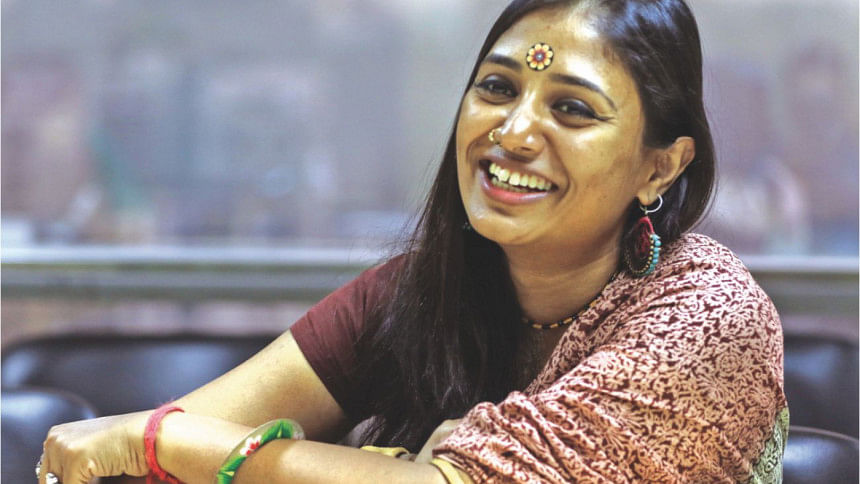
Not only is Wasfia the mountaineer an inspiration to other young people in the world, but she is also a humble human being, always trying to make lives better for others, whether Bangladesh, Nepal or for Tibetan refugees. "I hope to start a school for adolescent girls in Bangladesh where they will learn to empower themselves through various adventures and activities in nature," she says. "Many young men have asked me why I am not integrating them along with the females. The fact that all of this is done on loaned money makes it a hard mountain to climb. We will surely do that as well, eventually. But first, I would like to focus on women and girls, where it is needed the most."
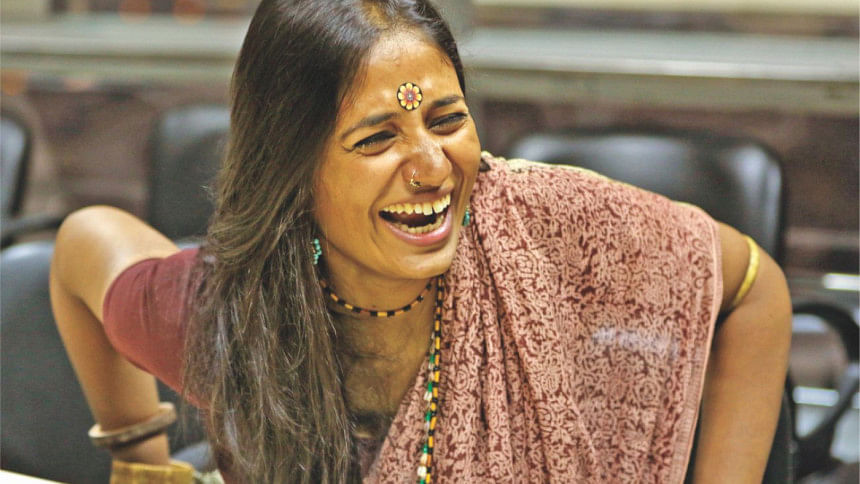
"I am not so fond of the congested life in Dhaka," says a thoughtful Wasfia as she finally calms down and takes a sip of her tea. "I am in love with nature - her mountains, forests, valleys and streams. And once you are back to nature, you can only go deeper!"

 For all latest news, follow The Daily Star's Google News channel.
For all latest news, follow The Daily Star's Google News channel. 


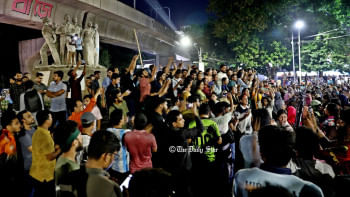
Comments